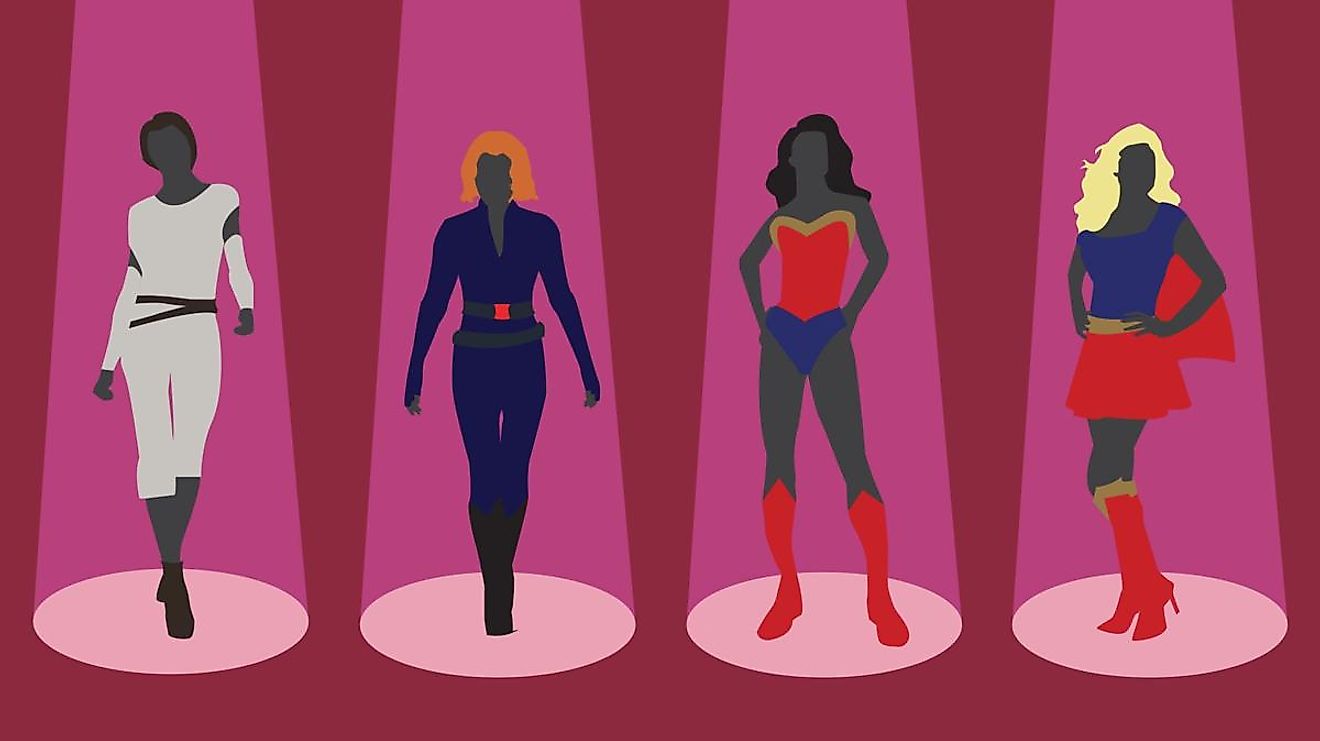What Is The Bechdel Test?

- The Bechdel Test was invented by the US cartoonist Alison Bechdel.
- Many Hollywood movies do not pass the Bechdel Test.
- Strong female characters in works of fiction can boost girls' self esteem.
Have you ever watched the latest blockbuster and felt it was not as great as some people were saying? Was it because of the music, the storyline, or was it maybe due to something more complex, like the message it was sending about women?
You are not the only one to have felt this way. In fact, one person felt so strongly about sexist roles women are sometimes given in works of fiction that she developed a test to detect these problems. Her name was Alison Bechdel, and she invented the Bechdel test.
To pass the Bechdel test, a work of fiction must feature a few key things. It must have at least two women in it, these women must talk to each other, and their conversation has to be about something other than a man.
Bechdel History

Alison Bechdel first described her test in 1985, in her comic strip series called Dykes to Watch Out For, which ran from 1983 to 2008. Since its popularization, the test has become a benchmark of sorts. Some people see the Bechdel test as a beneficial way to quickly determine if something like a movie displays a gender bias. Well-read sites and magazines like Indiewire.com and The New Yorker have both posted articles linked to the test.
Indiewire.com’s post entitled “Bechdel Test 2017 Breakdown: Which Blockbusters Passed, Failed, and What Needs to Happen Next” listed all the best movies from 2017 and where they sit in terms of women’s roles. The New Yorker gathered many readers with its post on the same topic but related to the Oscar nominees in 2018.
Is the test really all it is cracked up to be, however? Some feel it is far from perfect.
“In fact, sometimes the Bechdel test can be a misleading gauge of “feminism” in movies. For example, Gravity featuring a female astronaut, played by Sandra Bullock, doesn’t pass the test, but Legally Blonde does, simply because Elle and her friend talk about their dogs in a scene or two. This goes to show that the test does not measure the artistry or gender equality within a film, but rather represents a superficial measure of the value of a film,” wrote Anna Waletzko in the Huffington Post.
Waletzko goes on to explain that in her view, the Bechdel Test is much too two-dimensional and unnuanced to accurately measure any message of female empowerment in movies. What do we think? While the Bechdel test may not be the best way to dissect a piece of fiction for gender bias, it could be a good place to start from.
Why it Matters
Does anyone besides Alison Bechdel really care how women are portrayed in movies and books? The answer to that is, yes. Or, at least, we probably should. Research shows that girls with lower self-esteem are much more likely to engage in risky behavior such as bullying, self-harm, smoking, and drinking. Works of fiction with strong female characters can inspire readers to be like them, and this can boost girls’ confidence.
Sally Green writing for the Irish Times explains how the book series The Swallows and Amazons had female characters that convinced her she could partake in traditionally “male” activities like camping and hunting in real life. Unfortunately, a vast amount of popular works of fiction either in print or on screen fail the Bechdel test.
Waletzko points out that only three out of eight nominees for best picture at the 2014 Academy Awards passed the Bechdel test, and the 2011 Hollywood Diversity report from the Bunche Center at the University of California, Los Angeles found that only 25.6% of the actors in movies made in Hollywood that year were females. The rest were all men. If we listen, we can likely learn from what the Bechdel test is telling us. It could potentially make the world a better place?











